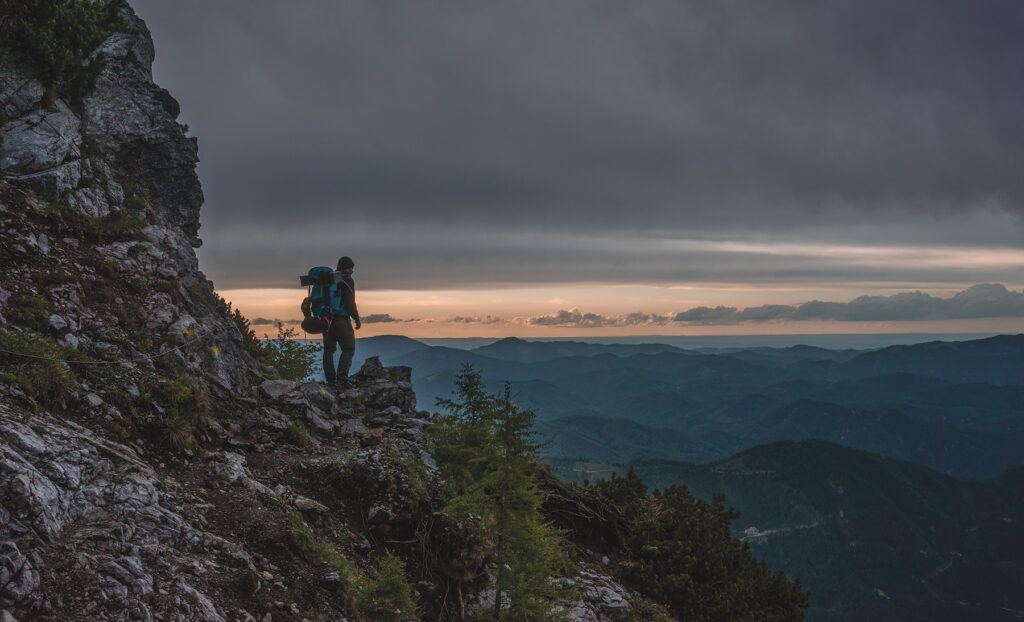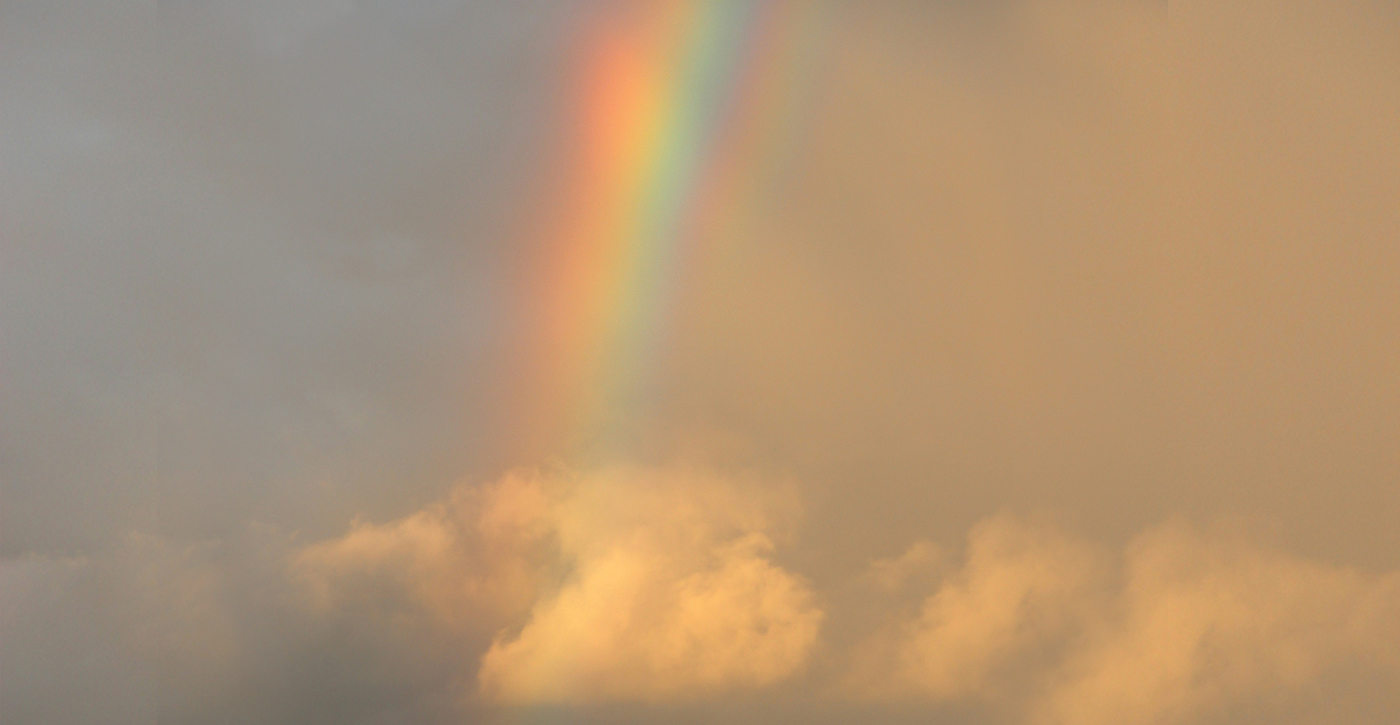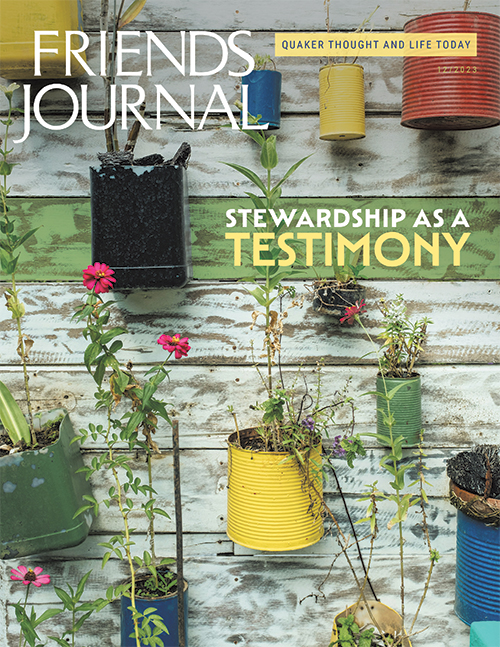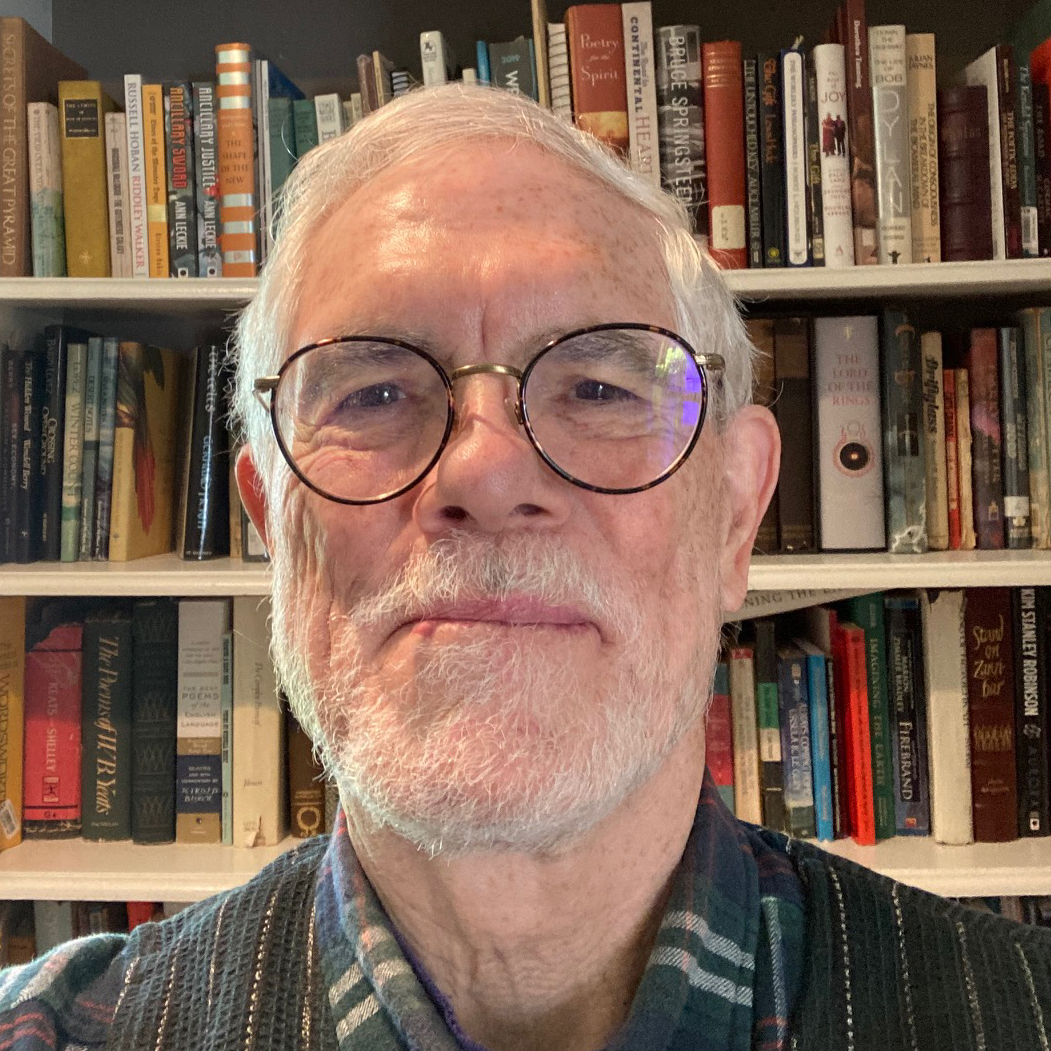A Testimony of Earthcare Love
steward: from Old English for sty ward, the person responsible for the care and military protection of the Lord’s swine, and by extension, his wealth and property
The Christian earth stewardship movement began in earnest in 1962 with the publication of Rachel Carson’s Silent Spring. Since then, however, Christian writers, communities, and institutions have not made any meaningful progress in implementing these principles. There are several aspects to this failure.
Covenant
Christian earth stewardship’s framework for implementation is covenant: agreements about earthcare between us humans, God, and creation that are theoretically binding in some way. To my knowledge, however, no Christian institution has ever actually defined these agreements and the consequences of violating them, nor created a framework for applying them to actual behavior—let alone actually enforcing them—either within the community or with regard to external entities like corporations or governments.
Dominion
There is also the central principle of dominion in stewardship. Creation has for billions of years been on creative evolution autopilot, but now, much of it is on manual human override and spaceship earth is headed for a crash. Now, our dominion is a given; now we now move rivers and whole mountains and wipe out whole species.
Dominion implies that the “land-Lord” has given us broad discretion in our stewardship decisions, but being stewards—not owners—implies that there are limits to how far we can go in our actions without getting the owner’s permission. Surely we have now reached those limits in lots of spheres of human activity.
Real covenantal stewardship for this manual control requires a meaningful framework for asking God’s guidance and permission (or Spirit’s, if you prefer) when it comes to the really consequential decisions. For example, it might be asked:
Hey God, is it okay if we hunt your passenger pigeons to extinction? We (think we) need the food. But this seems like a big move, since we’re eradicating one of your creatures forever. We know they glorify God with their beautiful plumage, their songs, and their awesome plentifulness. So we’re asking permission first. What do you say?
Just asking the question makes the answer more or less self-evident.
With our various discernment processes, Quakers are just about the only Christian community that actually has a way to ask such a question and get an answer, to test the answer, and then agree on how to proceed as a community. Most of the rest of Christendom has no comparable structures or protocols for asking God’s guidance on important stewardship decisions.
Accountability
How is covenantal accountability going to work? Theoretically, we stewards will be held accountable for bad stewardship, for the violent spoilage of God’s handiwork—but how? And when? Our civilization commits most of these sins; we individuals are mostly captive in a system over which we have very little control. We have to use fossil fuels, and we have little choice but to buy our stuff in plastic packaging. Is God going to send us to hell for not recycling? The Christian tradition hardly provides for collective accountability, maybe as judgment at the end times, but even then, it is still focused mostly on individual judgment. Unless you view our current floods, droughts, and heat deaths as God’s instant karma, Christian stewardship’s proposed accountability system is a hollow threat.
All of the important divine revelations in the Jewish and Christian (and even Quaker) traditions have taken place outdoors, often in wilderness, and often through natural agency. Let’s list some of them.
Cosmic and mythical revelation
Creation is God’s first and continuing revelation, through Christ, the Logos/Word, as is written in the first chapter of John. This makes destroying creation equivalent to re-crucifying Christ.
God first speaks with Adam and Eve in the Garden. God’s first communication and revelation to humans in the Bible takes place in a garden (though a plant, an animal, and a woman become the fall guys).
The Deluge, the flood narrative in the Book of Genesis, is God’s first use of nature as a weapon. With the rainbow, God promises covenantal peace to Noah, the rainbow being the revelation signature to the covenant.
Revelation to the patriarchs and matriarchs
God promises fertility, a nation, and land to Abram, taking him outside to count the stars, and later “near the great trees of Mamre,” there is a forest revelation.
God delivers Isaac from human sacrifice and renews the Abrahamic covenantal promise, occurring as a mountain and wilderness revelation.
Jacob wrestles with God/God’s angel and receives his new name, “Israel,” in a revelation near a river.
The origins and deliverance of the people of Israel
God commissions Moses at the burning bush: a mountain and wilderness revelation.
God redeems and adopts Israel as his people at the Passover and Exodus, in which nature becomes God’s weapon.
God reveals the Law at Sinai: a mountain and wilderness revelation.
The origins of Christianity
God provides signs at Jesus’s birth: a “countryside” revelation in a barn and field.
Jesus is tested in the wilderness: a wilderness revelation.
Jesus faces another trial in Gethsemane: a garden (non)revelation.
Jesus is crucified: a mountain revelation.
Quaker revelations
George Fox’s vision of a great people to be gathered on Pendle Hill: a mountain revelation.
The convincement of the Seekers on Firbank Fell, which jump-started the Quaker movement, was a mountain revelation.
If, in our Quaker tradition, wilderness is where the people are most likely to encounter God, why aren’t we out there more often ourselves?
The revelations in the course of Jesus’s ministry are especially important, and Christian earth stewardship theology has mostly ignored them. Look where Jesus went, to do what, and why! The wilderness and mountains were essential to his own spiritual formation and practice. He returned to them repeatedly for spiritual renewal. He preferred them as places to teach. Why don’t Christian seminaries send their seminarians into wilderness retreat as part of their spiritual formation programs, in emulation of Jesus himself?
If, in our Quaker tradition, wilderness is where the people are most likely to encounter God, why aren’t we out there more often ourselves?
This works for me, almost every time. No activity is more likely to bring me into communion with the Spirit than hiking in the forest or trekking into the mountains: not even meeting for worship. In the workshops I’ve done or attended on earthcare, participants very commonly recount personal transcendent experiences in nature, often beginning in childhood. In other words, many of us have already had our own wilderness or nature revelations, but our post-biblical tradition does not explicitly support it. In fact, it warns us off.
Christianity is a cosmic and universal religion. It claims to be relevant (in some people’s view, necessary) as a spirit-way for all people in all places and in all times. The Catholic mass and Protestant services—and Quaker meetings for worship—are each in every place conducted the same way, no matter where you are. This is radically different from Indigenous spirit-ways, which are inherently place-specific in their form and content, even though they also have a cosmic dimension.
Quakerism is even more abstract, more divorced from nature, than most other faiths. It’s deeply inwardly focused, even in community worship. We don’t practice the outward sacraments, which, for those communities that do, provide some connection with the natural world. They could find out where their baptismal water comes from and make sure they’re not pouring toxins into their babies’ eyes at baptism. They could know where their wine comes from and make sure that no pesticides are used, that the workers in the vineyard are paid well, have healthcare, and are otherwise well-treated. They might be able to buy from a local winery.

What would a locally based Quakerism look like? Bioregionalism is a philosophy that asks us to organize ourselves around naturally defined areas. What if we had a religious culture of place that went beyond treating earthcare as just one of our testimonies? We could work to integrate the needs and gifts of our meetings’ specific locations into the other aspects of our corporate religious lives.
For instance, we could ask one of our members to attend business meeting, not just as themselves but also as the representative of the meeting’s local ecosystems. This was done at a North American Bioregional Congress I attended in the 1980s. This person’s charge would be to consider the ecological implications of our decisions. Meeting members could attend or even serve on local environmental commissions and zoning and planning boards to protect our local places. We could develop supportive relationships with local land-preservation nonprofits. Local, regional, and yearly meetings might rename themselves and/or reconstitute themselves according to their local bioregions, rather than according to European settler history and the cities the settlers have built. For example, the parts of New York Yearly Meeting and Philadelphia Yearly Meeting that lie within the Delaware River’s watershed might merge to form the Lenapewihittuk Yearly Meeting, after the Lenape name for the Delaware River. My own meeting, Central Philadelphia (Pa.) Meeting, might rename itself Tulpehane Meeting, after one of the possible Lenape names for the Schuylkill River.
We could develop programs for our kids that teach local earth science and give them the same outdoor education I got from the Boy Scouts but without the paramilitary trappings: go hiking, camping, and kayaking; teach how to identify local birds and trees; and build stay-over camps. This takes adult leadership that has the necessary skills, and that might be hard to come by. So we might all have to learn the skills together. As families and as congregations, one of our greatest earthcare gifts could be to send our kids to Quaker earthcare camp.
What if we had a religious culture of place that went beyond treating earthcare as just one of our testimonies? We could work to integrate the needs and gifts of our meetings’ specific locations into the other aspects of our corporate religious lives.
This brings me, finally, to love. We protect what we love. We love what we know and understand. And we know what we have experienced directly, deeply, and/or repeatedly. For love to be the first motion of our earthcare, we have to get out there into the earth that we care about, to the degree that it’s possible for us, given our urban environments and our personal limitations.
And we must rethink our approach to earthcare witness in terms of love. Our earthcare minutes—our minutes of conscience in general—tend to sound more like press releases from secular, social change nonprofits than like prophetic messages from a religious community with a mission from the Holy Spirit. We tend to cite statistics, describe and decry the damage, argue from the physical and social sciences, and point to political solutions. We might briefly cite a testimony, but we rarely cite the Bible, or even our own Quaker forebears. We try to change people’s minds—how they think. All of this the nonprofits are already doing pretty well, or at least they’re trying. It turns out that it’s hard to change people’s minds.

What earthcare nonprofits do not do—and pretty much cannot do—is use explicitly moral language. What we Quakers can do is speak directly to people’s consciences, to their faith, and to their souls. To do this, we should use scriptural language and references when we can in order to appeal to the considerable number of Christians who will be our audience. And we should articulate a practical covenantal framework for naming earth-harm sins and holding the perpetrators accountable.
We should also continue to speak the more generalized spiritual language that is now the hallmark of liberal Quakerism but with greater attention, intention, and integrity. Many of us are not at home with explicitly Christian and scriptural language. However, many Quaker earthcare witnesses speak of that of God in all creation, expanding on the belief in that of God in every person. But what does “that of God in all creation” mean? We need to unpack this theology (and theology it is; make no mistake). Otherwise, it’s just a buzz phrase without real power. How in our view is Spirit manifesting in all creation? How is Spirit manifesting in our local ecosystems?
And we should talk about love. Social change nonprofits are not likely to talk about love, but it is the very heart of our identity as the Religious Society of Friends. John 15:15 says, “I have called you friends . . . [if you] love one another.” This is love for God, the Spirit of Wisdom in Creation. The Logos is the direction of evolution itself. This is love for the beings we share our place with; loving thanksgiving for the gifts we have been so generously given; love for our neighbors, those in space who share our place; and love for those in time, our children and their children unto the seventh generation.
We need a testimony of earthcare love that characterizes nature as divine revelation and as God’s preferred vehicle for revelation; that answers the great commandments, to love God, to love each other, to love even our earthcare enemies; and that expresses the love that so many of us feel for this beautiful and bountiful world so that it remains in God’s love, beautiful and bountiful.





Very well said! Spirit/God inspired action and simple living, is far more motivating for most than data from secular non-profits, and a moral ecology summer camp would be a great long-term starting point for youth.
Interestingly, covid inspired far more tele-commuting to save energy, as well as disrupted production/distribution, greatly reducing emissions. Covid also raised inflation, allowing central bankers to unilaterally slow the global economy by raising interest rates and/or buying less debt. Meanwhile, media keeps provides wealthy young investors clear profit warnings to shift funds from dirty, toxic polluters to cleaner, more sustainable technologies. Fortunately, all the needed solutions already exist and can be quickly implemented if needed, although that could be very economically disruptive if not done gradually, harming the poor the most.